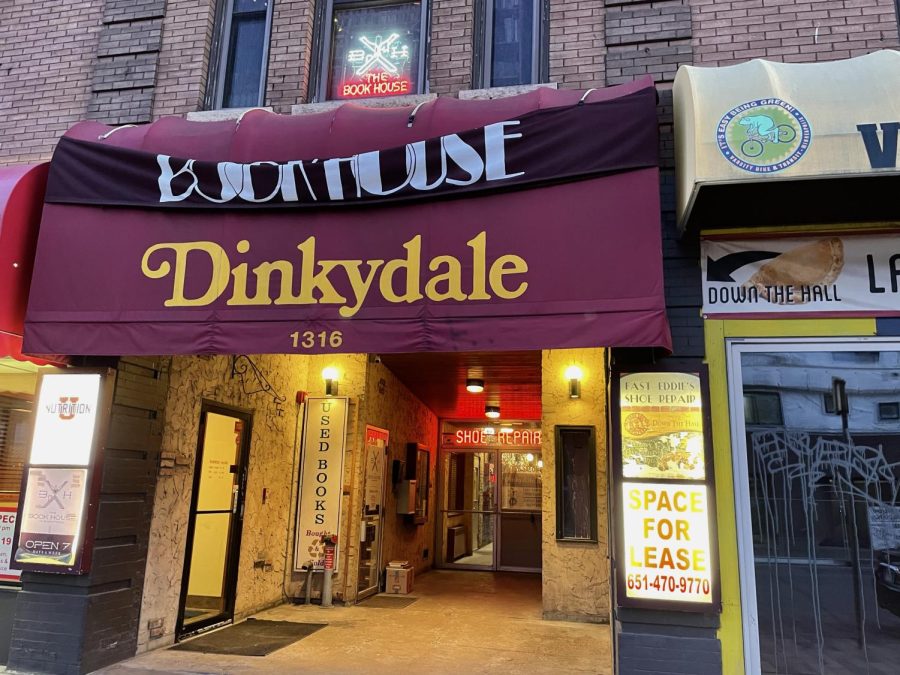While many 2020 quarantine trends, including bread baking and whipped coffee, faded in time, many Americans picked up reading and never put it down thanks in part to BookTok.
Due to the sheer amount of bookstores in the metro area, it is no surprise that book influencers are leaving a mark on the local book scene. In the Twin Cities, finding a local bookstore within a 5 mile radius is not difficult. Although the metro area may not receive as much book clout as Portland, Oregon or the Bay Area in California, both Minneapolis and St. Paul are in the top 50 US cities with the most book establishments per capita. Along with bookstores, Minnesota also has many book influencers on social media that contribute to both the local and national reading scene.
Chain bookstores, like Barnes and Noble, jumped onto this trend and have it woven into their marketing by sprinkling tables labeled “Popular on BookTok” throughout their stores. To keep up with the demand for physical books and large booksellers, local bookstores are figuring out how they fit into the future of reading.
Established in 1976, the Book House in Dinkytown remains the last non-University of Minnesota owned bookstore in the campus area. Walking among the twisting stacks and booklined walls, the store leaves its visitors to hunt for a book that interests them, rather than organizing a “Popular on BookTok” table. One of the owners, Matt Hawbaker, explained that compared to large booksellers, the Book House doesn’t pay as much attention to book influencers on social media, partly because used bookstores function differently. Instead, the store itself serves as its own influencer.
“It’s hard for us to respond to requests because that’s not our business model; I like the randomness of it.” Hawbaker said. “People can browse here and find what they’re looking for, but also find something of interest that might be older or under-discussed and like influencers, we want to bring new things to people.”
Another Twin Cities bookstore that is sticking to its guns is Next Chapter in St. Paul. Like Dinkytown, it caters to its local readers more than it attempts to adhere to trending books on the internet. Graham Overby, a bookseller at Next Chapter, noticed this after coming to the store from a job at Barnes and Noble in 2021.
“In my previous experience at Barnes and Noble, Booktok played a huge role in our sales,” said Overby. “When I started here at Next Chapter, none of my coworkers knew these authors because the type of books seen as social media phenomena don’t sell here the way they would at a mall.”
While Barnes and Noble uses social media influencers to draw a younger crowd, Next Chapter is using manga to reach its youth audience. They broadened their manga section and are even starting a manga club this fall.
“When I started here last year, me and a coworker made an effort to stock more manga and since then, we’ve gradually seen the number of college-age shoppers increase,” said Overby. “We’re stocking more titles that younger readers are interested in, and it’s paying off.”
Stephanie Henigin is one of the Twin Cities area’s major book social media influencers.
“We have a lot of great Minnesota bookstagrammers and authors,” Henigin said of her St. Paul-based Bookstagram. “Minnesota is definitely on the map.”
Henigin, who commands more than 8,000 followers through the account @stephsbooktherapy, picked up reading again as soon as the pandemic shut down the nation, thus a typical example of contemporary American reading trends.
“The publishing industry is tapping into influencers because of social media,” said Henigin. “That just seems to be the way people get noticed for their books.”
Book social media influencers first rose to popularity in the fall of 2020, causing an uptick in younger readers and viralized the reading of physical books. This pattern continued into 2021, when sales in print books rose by 9%, the highest the industry saw in years. While TikTok led the physical book-buying charge, book influencers on other platforms, like Instagram and Youtube, also gained a following.
Henigin, who also works a full-time job as a speech pathologist, sees her bookstagram as more of a hobby than a job. As local bookstores have become gathering places in their own neighborhoods for book-lovers to share recommendations and learn about others, Henigin explained that Bookstagrams create a similar sense of community on the internet.
“The community is so encouraging and supportive,” Henigin said. “I feel like I gained so many valuable, genuine new friends.”
The influence of BookTok on readership still leaves these local bookstores to fill in the gaps in their local communities and supply young people with books outside of the algorithm.
Despite the differences in book selection and marketing by different stores and social media accounts, a passion for reading is at the root of the lives of both booksellers and Bookstagrammers.
“I think there’s sort of a parallel track with how vinyl has come back,” said Hawbaker. “There’s also a rare book and printed material culture that also I think exists alongside the influencer world.”













